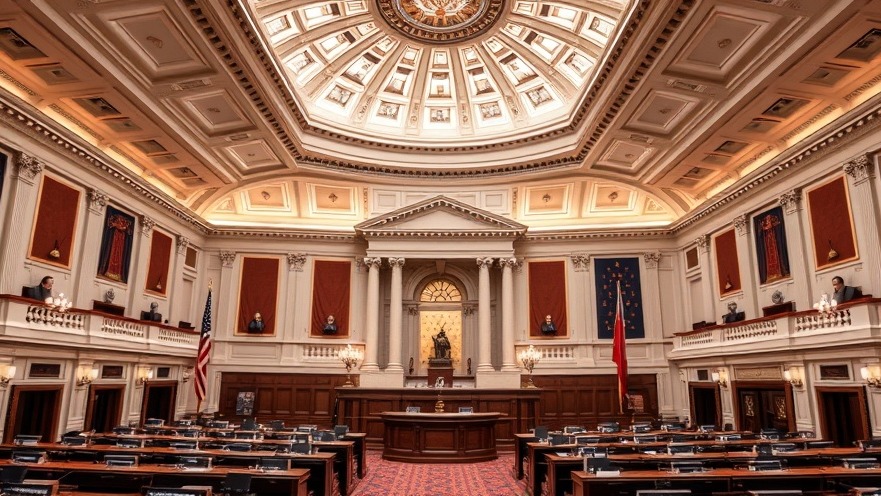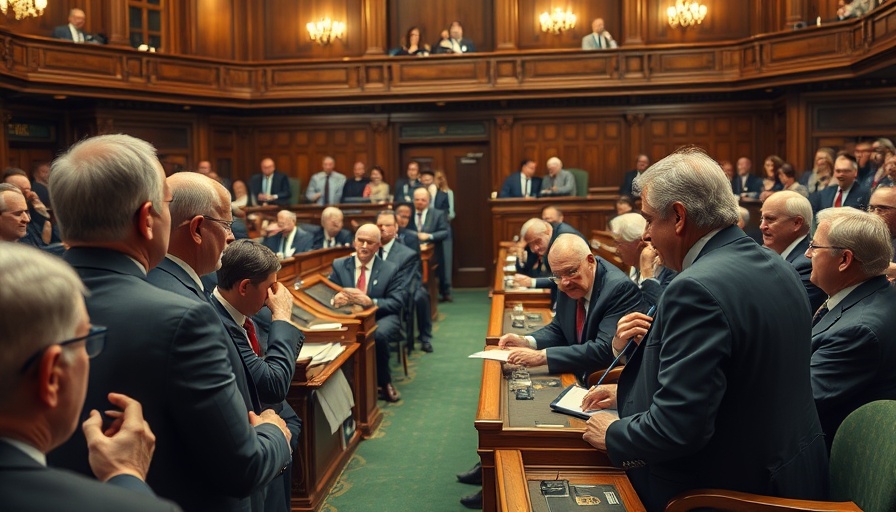
Abbott's Proposal: A New Era for Texas Legislative Quorum Rules
In a dramatic move that could reshape the landscape of legislative processes in Texas, Governor Greg Abbott is campaigning for new penalties directed at lawmakers who deliberately flee to halt legislative sessions. This proposal, outlined in his latest special session agenda, aims to counteract what he terms "quorum breaks," a tactic that has surfaced in recent years among legislators as a method of protest.
The Context of the Quorum Break in Texas Politics
Historically, lawmakers have utilized quorum breaks as a legislative stall tactic, often during contentious issues such as voting on significant bills related to voter restrictions, gun laws, and immigration policies. This has raised questions about the effectiveness and integrity of the legislative process in Texas. With the proposed penalties, Abbott aims to discourage this practice and ensure that legislative sessions run smoothly and efficiently.
Understanding the Goals Behind Abbott's Penalties
In Abbott's view, imposing penalties on lawmakers who skip sessions would help restore order to the Texas legislature. By holding responsible those who walk out, he believes lawmakers will be compelled to engage in discussions rather than flee from difficult decisions. The Governor's push reflects a broader trend in state politics where tensions between the parties often lead to escalated tactics and legislative gridlock.
The Implications for Future Legislative Sessions
These proposed changes come at a critical time as Texas prepares for upcoming political races and the crucial 2025 elections. If successful, Abbott’s initiative could significantly alter how both parties strategize their approaches to legislation, potentially making it more difficult for dissenters to express their opposition. The stakes are high, as the future of Texas policies on education, gun rights, and border security hang in the balance.
Counterarguments and Diverse Perspectives
Opponents of Abbott's proposal argue that such penalties might lead to diminishing governmental debate and inhibit necessary dissenting voices. They worry that effective governance requires room for serene protest and debate, which these penalties could undermine. This discord suggests a deeper challenge in balancing legislative order with freedoms that allow for opposition to flourish.
Looking at Similar Measures Elsewhere
Texas is not the only state grappling with lawmakers using tactics to stall or halt legislative progress. Other states have also proposed penalties against such actions; for example, North Carolina implemented penalties against absentees in similar contexts. Observing these models can provide useful insights into how Texas might navigate the fallout from Abbott’s proposal.
A Glimpse Into the Future of Texas Politics
The idea of creating penalties for quorum breaks could herald a significant shift in Texas politics. As voters become more aware of such measures, their responses could greatly influence the upcoming elections, particularly if Abbott's plan ignites considerable debate over governance styles. The future of Texas legislation may hinge upon the community's response to these changes, further defining the state’s political climate.
Concluding Thoughts on the Legislative Landscape
Governor Abbott's push for new penalties against lawmakers fleeing sessions could represent a pivotal moment for Texas politics. The effectiveness and repercussions of this initiative remain to be thoroughly scrutinized as it develops. Observers will be closely watching how these proposed changes might impact the engagement levels and decision-making processes within the state's legislative bodies.
Texans must remain informed to understand how these shifts may impact local decisions and policies. By staying engaged and participating in discussions about legislative changes, individuals can ensure that their voices are heard as the future of Texas governance is determined.
 Add Element
Add Element  Add Row
Add Row 



Write A Comment